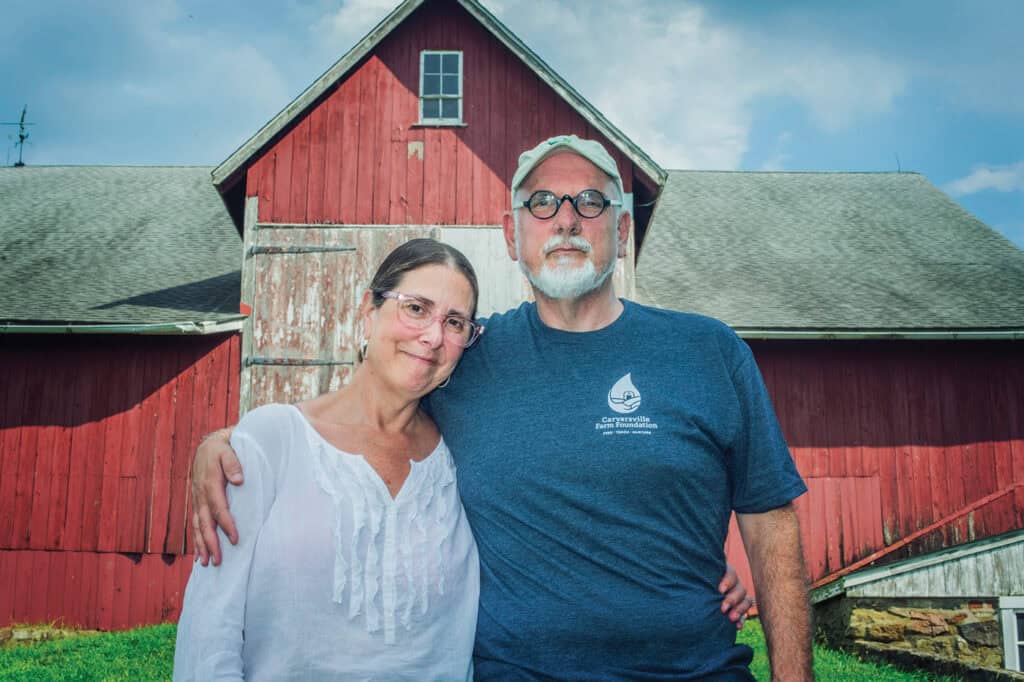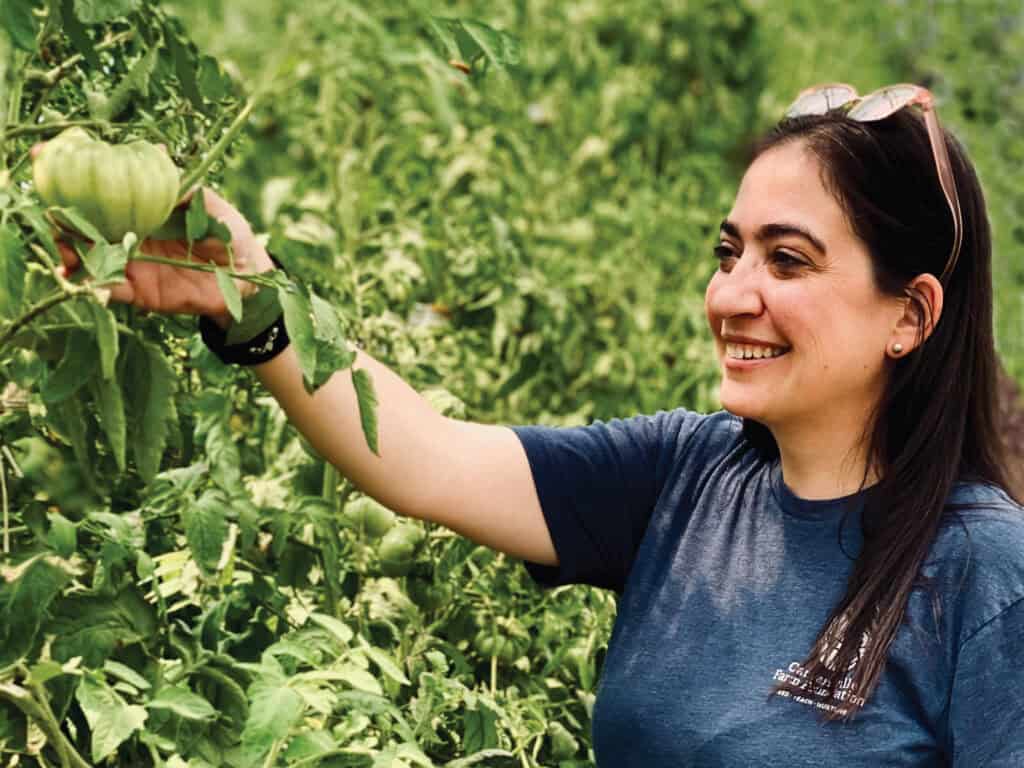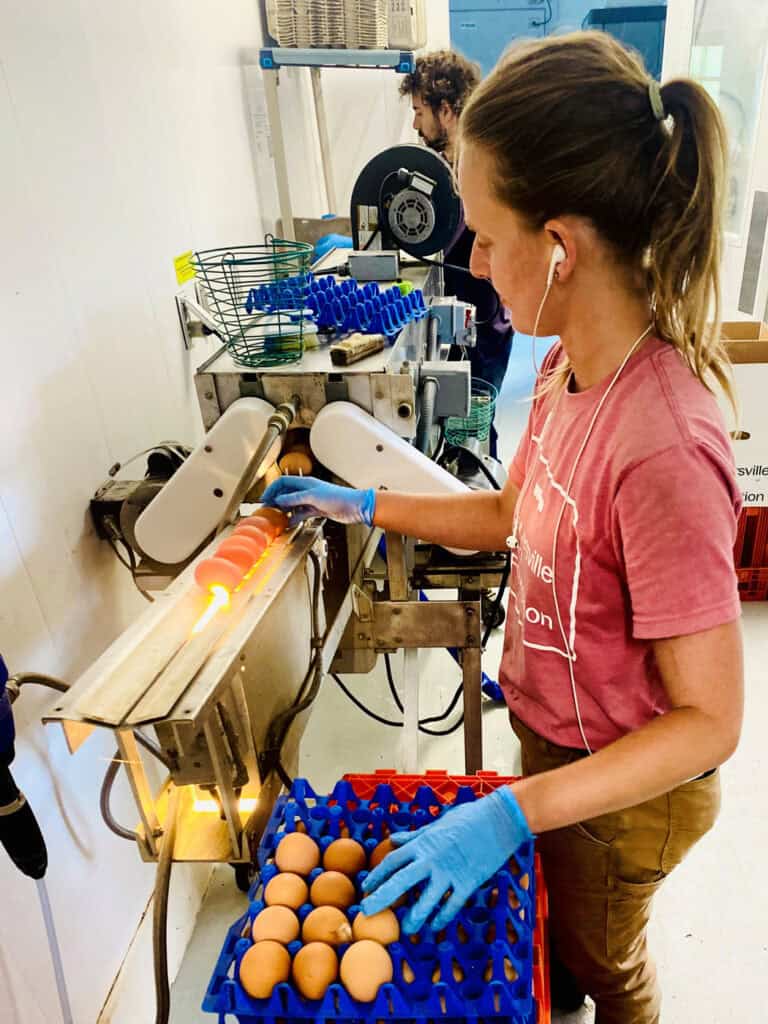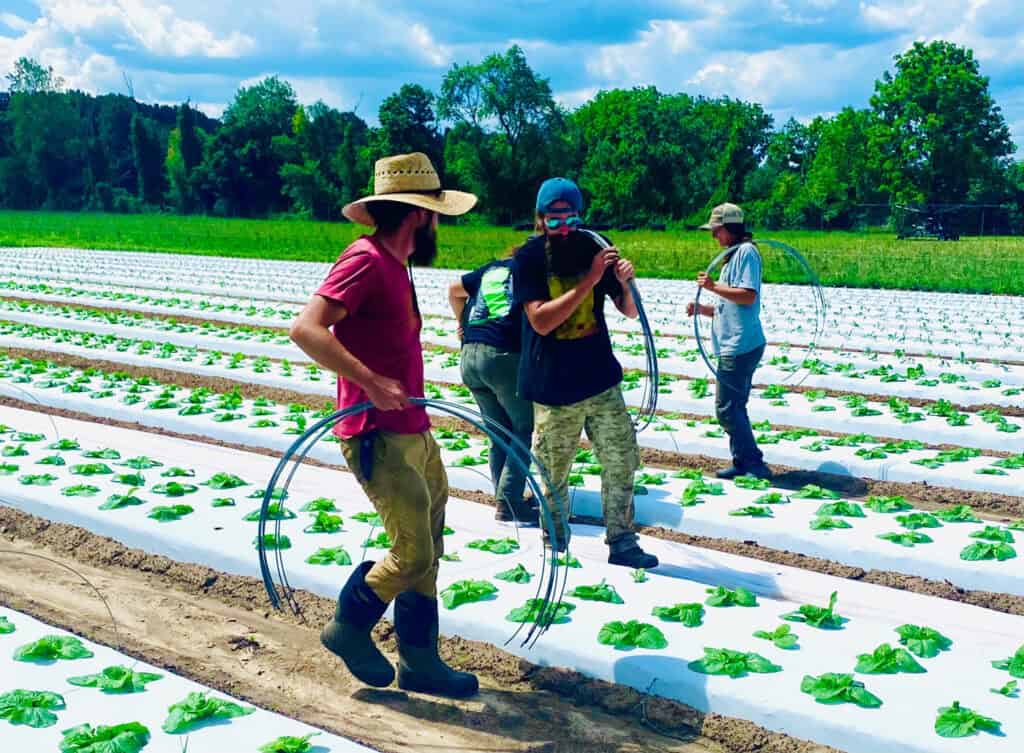
Just over a decade ago, Stephanie Delucia, who was heading up the marketing department for Vertical Screen, an international information technology firm, recalled how Tony and Amy D’Orazio, the entrepreneurial husband-and-wife team, came into her office, closed the door, and said, “We need to talk.”
Stephanie gulped as she heard that ominous phrase. Then she saw that Tony and Amy’s smiles were conveying a completely different message.
Amy simply said, “We bought a farm.”
“That’s cool,” Stephanie responded, though she was still unsure why they chose to tell her in such a private way.
Tony explained, “We want you to work on the farm.”
Stephanie just laughed, saying, “Tony, I kill houseplants.”
“Oh, I know that,” he beamed, having worked with her for seven years. “We want you to be our first employee, and to oversee the administrative and organizational aspects of the farm.”
Then Amy and Tony exuberantly shared their vision of producing the highest quality food – and giving it away.
As Tony said, “We are going to grow the type of food that is served in the best restaurants in the world, and donate it to people who are hungry and living in poverty.” He added, “People who are struggling, who can’t make ends meet, have an untold amount of stress in their lives. They are hurting in so many ways. But that does not mean they should have to go to bed hungry.
“We studied shelters, food pantries and soup kitchens,” he said, “which all toil to manage donations. So, more often than not, they have to use whatever small budgets they have on lowest-priced and lowest-quality food.
“That is where we are going to make a difference. Everyone deserves high quality food. Philosophically, this is about respecting everyone’s dignity, regardless of what they are currently going through.”
Stephanie knew that Tony and Amy had been involved in donating financially and were board members of several nonprofits in the Philadelphia area where they grew up.
“What we feel is important now,” Tony said, “is to take direct action, and have a more profound impact on alleviating hunger.”
Without having to think twice, Stephanie told Tony and Amy, “I’m in.” She added, “I loved the idea of how important this was, and how we would make a difference.”
From there, the nonprofit, known as Carversville Farm Foundation, had its first employee.

While generations of farmers were concluding that small and medium-sized farms were not sustainable, Amy and Tony, decided that it was their time to become farmers. “Out of a dollar used to purchase food from a farm,” Tony explained, “four cents goes to the farmer. It is a very challenging place to make a profit. And you cannot do everything efficiently, which is why most farmers specialize in one crop.” Instead of running it like a business, he explained, “We chose to feed people.” Sustained mostly by Amy and Tony, at this point, the foundation spends about two million dollars per year to run the farm.
“Farming is hard work. Very hard work. And whenever I get tired,” Tony mused, “or need to have my inspiration lifted, I love going to The Mission or another one of our partners. There, I see the people who are being helped. And I know why I am doing this.“
“I didn’t know the first thing about farms. But I loved them. I grew up in South Philly, and our backyard was about this big,” Tony said, pointing to a large table in the middle of the room. “What I do know is how to see a need, how to recognize talent, how to run complex organizations, and how to bring people together,” he added. Most importantly, he knows how to make things happen.
They started by buying most of the 388 acres of land they now own in a rustic part of Bucks County. Then, they spent three years replenishing the soil. “Unfortunately,” Tony explained, “most European farming methods – including herbicides, pesticides, fungicides, etcetera – abuse the land. So we had to grow topsoil to give the land back its proper nutrients. Only then could we start growing vegetables.

Now, in every direction you look, the farm is full of colors, life and energy. In one field, hens lay more than 2,500 organic eggs a day in their high-end mobile chicken houses. “Eggs are a perfect source of protein,” Tony reminded. In another field, herds of Angus cattle are grazing. Bourbon Red turkeys mill around separately. And rows upon rows of organic vegetables reach up to the sky.
The farm thrives on the support of volunteers, as well as 12 permanent staff and 7 seasonal workers.
And since partnering with The Mission in April, we have been fortunate and grateful to receive over 6,000 pounds of certified organic vegetables and pasture-raised meat and eggs. More specifically, the foundation has donated 3,982 pounds of chicken, 3,984 dozen eggs, 2,132 pounds of Beef, 1,972 pounds of Turkey, 313 pounds of Stewing Hens, and 7,978 pounds of vegetables.
The Mission’s Chef Dave Jawidzik said, “The high quality of this food is astounding. So many people notice it, appreciate it, and compliment us on how delicious the meals are. And, with such tasty raw ingredients, we have become more creative in the meals we are preparing.”
“It is outrageous in any country, let alone ours, that someone can go hungry.”
Barrett Young, Chief Executive Officer of The Mission, added, “When someone comes to The Mission, the first thing we ask is, ‘Are you hungry?’ Then over a warm meal, we get to know them, and discover how we can be most helpful. Serving a delicious meal helps to create trust – especially for someone who is hungry and may have lost all hope. That first meal is the entry point to all the other social services we can provide – including a hot shower, a change of clothes, a safe place to sleep, a locker for their belongings, access to medical care, counseling, vocational development, and the possibility of finding their own home.”

“It is outrageous in any country, let alone ours, that someone can go hungry,” said Tony. “That’s why we are doing what we are doing. Farming is hard work. Very hard work. And whenever I get tired,” he mused, “or need to have my inspiration lifted, I love going The Mission or another one of our partners. There, I see the people who are being helped. And I know why I am doing this.”


